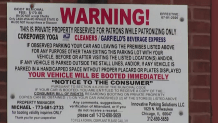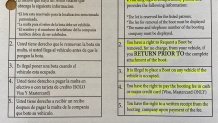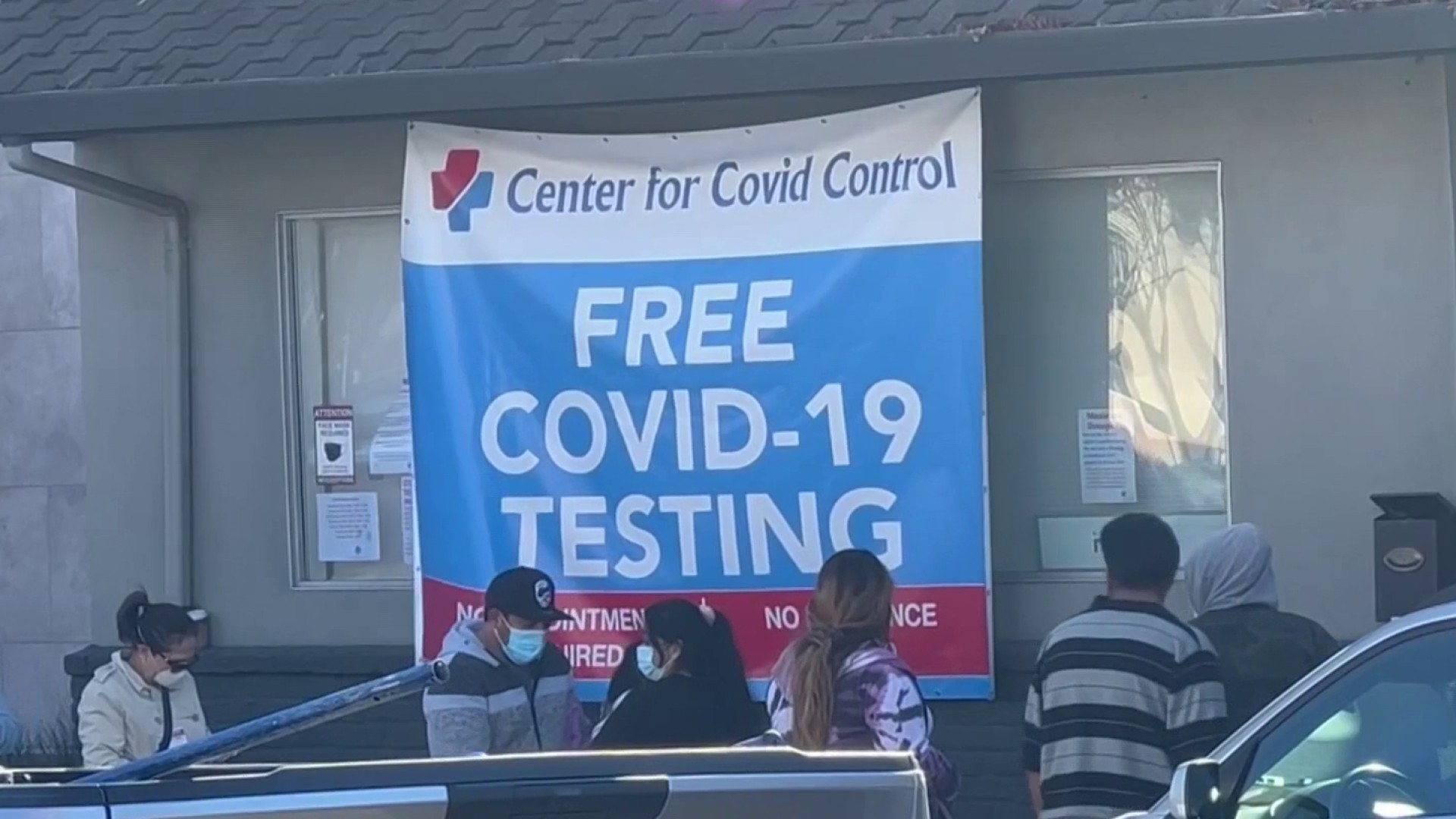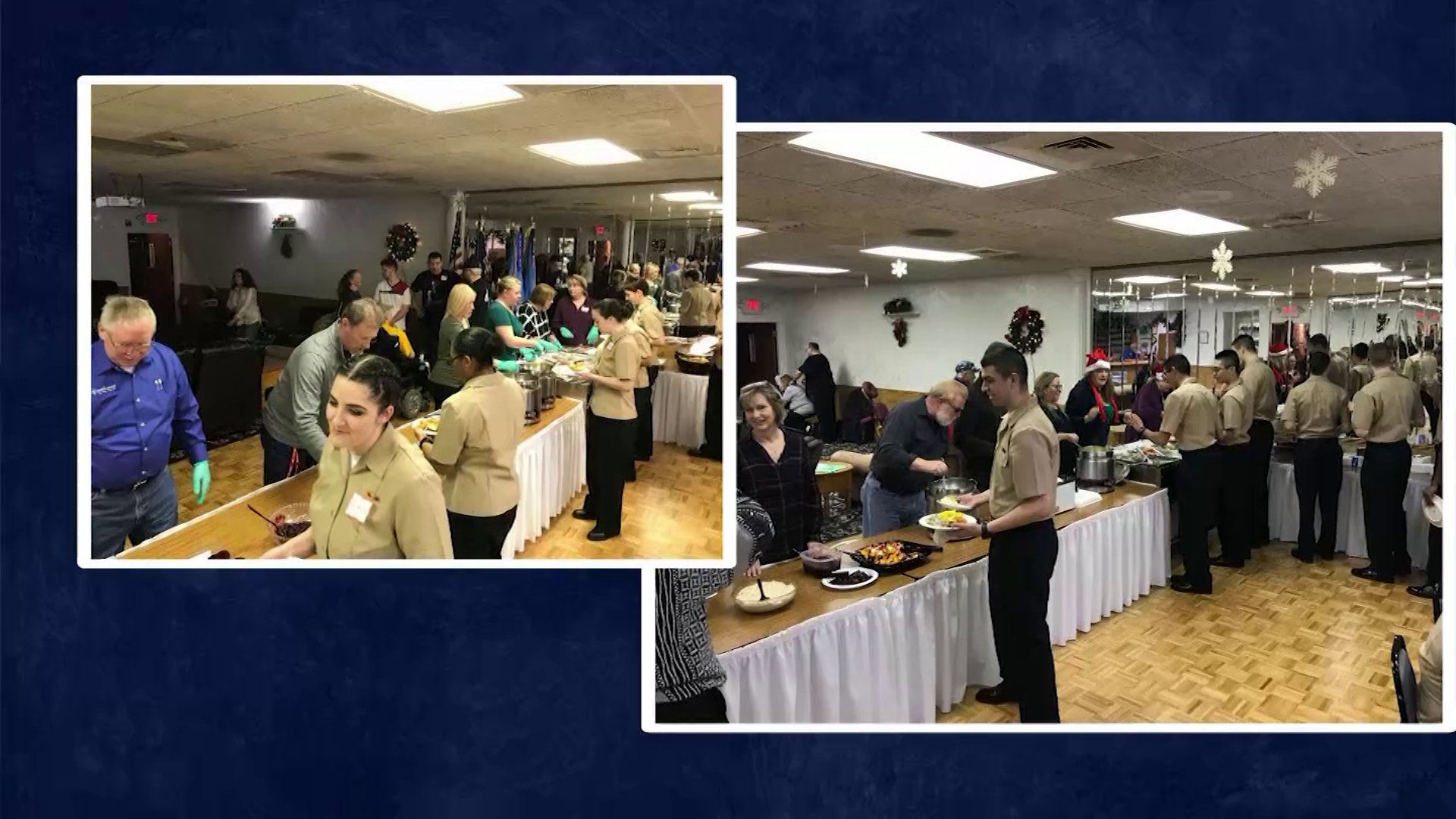EDITOR’S NOTE: A previous video version for this story referenced private businesses hiring private booting companies, including a Bucktown liquor store. After the story aired, the owner of this liquor store, Garfield’s Beverage, clarified that the private booting company was hired by the property owner, not the businesses that rent space at this Bucktown location. The video above has been corrected to reflect this.
It can turn a cheap night on the town, a quick errand run or last-minute change of plans into a costly Chicago outing: Private booting enforcement has expanded across the city for years now.
Where you shop and your attentiveness to warning signs dictates the risk, and if you’re not careful, you could pay a high price.
Only certain Chicago wards allow private booting enforcement, and the reason behind that is connected to local politics, with ordinances and hundreds of dollars in campaign contributions behind nearly every boot.
The largest, and most active, private booting company in the Chicago area is a company called Innovative Parking Solutions (IPS), according to city licensing records.
Private businesses hire companies like IPS to monitor parking lots, boot and fine drivers who park there but walk off the property. The cost to have a boot removed for drivers is $170, with payment requested on-site.
Parking areas under this type of enforcement are required by the city to have signs posted and visible.

While the signs are visible, IPS' employees are not. Often parked and out of sight, IPS' employees blend in with other vehicles on the lot, waiting and watching every driver that pulls in.
While some businesses love this option, keeping their lots filled only with customers, drivers facing the boot and its financial consequences feel a much different emotion.
Feeling out of the loop? We'll catch you up on the Chicago news you need to know. Sign up for the weekly> Chicago Catch-Up newsletter.
Records obtained by NBC 5 Responds from Chicago’s Department of Business Affairs and Consumer Protection show more than 250 complaints lodged with the city over private booting since 2019.
One driver in the 45th Ward told the city they were getting the COVID-19 vaccine when they were booted for parking in the wrong spot. Another driver in the 31st Ward complained they were booted after parking in a handicapped spot that wasn’t properly marked.
In both complaints, the drivers did not name the company behind the boot.
"This practice is deceptive," one driver wrote.
Many of those drivers who wrote the city were generally asking the same question: Is this legal?
The answer: Yes, but only in certain wards.
To see where private booting enforcement takes place, look at the map below or click here.
Chicago’s First Ward banned private booting last year after Ald. Daniel La Spata said he heard complaint after complaint from the ward’s residents.
"We had constituents reaching out to us who felt like they were being treated unfairly," La Spata said.
Initially, La Spata said his office tried contacting IPS and working with the private booting enforcer. Since the company’s employees are watching drivers, the alderman’s office asked if IPS employees could warn drivers before the boot goes on.
What happened next is debated by both sides.
"They essentially said to us, if we do that, it disrupts our whole business model," La Spata told NBC 5 Responds. "Well, if that's what the case is, come on. You're admitting to me that that's a predatory business model."
IPS' owner Michael Denigris disagrees with La Spata's version of events.
"That’s not what I said. They twisted the words," Denigris told NBC 5 Responds.
Denigris said when it comes to warning drivers before booting them, "It’s just not feasible. It doesn't work. The people that pay for that property, it's not fair to them."
At the start of 2022, 32 wards in Chicago allow private booting enforcement while 18 wards do not allow it.
Denigris said that’s a sign of his company’s progress and expansion over the years across Chicago.
"We started with two wards, 22 years ago," Denigris told NBC 5 Responds. "Now we have 32. It's not the other way around. We didn't start with 50 and go down."
Denigris explained the way it works is he has to approach aldermen to get permission to boot for businesses in their ward. That’s why the number of wards has grown over the years, Denigris said, with more private businesses hiring him for a more "modern approach" to parking enforcement.
That could be one reason why Denigris keeps a close eye on local campaigns.
NBC 5 Responds combed through campaign contribution records, finding in the last five years, IPS, including Denigris, have contributed $21,000 to local aldermanic campaigns.
Wards that received the most funding also allow booting. NBC 5 Responds reached out to all 14 alderpersons who received contributions for comment, but only three responded.
Like the 22nd Ward, where private booting is permitted, Ald. Mike Rodriguez received the most in contributions from IPS and Denigris: $3,500 in the last two years.
When NBC 5 Responds brought this to Rodriguez’s attention, he said he would, "forward these funds to COVID relief efforts on the southwest side of Chicago … to avoid any perceived conflicts of interests."
Even La Spata in the First Ward received a $200 contribution, a little more than a month before the alderman’s office began its conversations with IPS in 2021, and later banned booting operations altogether.
"I would like to believe that this communicates to people, through my legislative actions, contributions do not fully determine the choices that we make as legislators," La Spata said.
Denigris denies the contributions were in any way an attempt to buy influence.
"I get involved with the alderman of my wards, I go to events all the time," Denigris said. "They have good food. They have lots of contacts there where I can meet people that have parking lots. I go, I buy tickets, I don't give for any other reason … I have to be involved in the community."
Denigris is adamant that his company follows the city's strict rules, and in the cases where they don't, he's given drivers refunds and suspends or retrains his employees.
"We have nothing to hide and the way people are treated, that's the most important thing to me. I look after the community," Denigris said, adding that business owners have rights too.
"When you get a driver’s license, it’s your duty to follow rules and regard posted signs. That's your job, that’s everybody’s job," Denigris said.
While private booting enforcement is legal in certain parts of the city, drivers still have rights, and booting company employees have strict rules they must follow, in order for the boot and fine to be valid.
Here are the rules and your rights when it comes to private booting (full list of Chicago’s rules linked here):
- Warning Signs: Private lots that are using booting enforcement must have warning signs posted throughout the lot that are visible from every parking spot. The signs include the fee for removal, the rules about leaving the lot before or after patronizing a business, and the name of the company responsible for the booting enforcement.
- Attaching of Boot: This is important: If a driver returns to their vehicle prior to the complete attachment of a boot, the booting company is required to take the boot off at no charge to the driver.
- Occupied Vehicle: It is illegal for a company to attach a boot to a car’s wheel if there are occupants in the vehicle.
- Receipt and Documentation: Booting companies are required to give drivers a copy of the “bill of rights” explaining these rules when they are booted. Always request a receipt and documentation from the booting enforcement employee, in the event of an appeal.
- Right to Appeal: There are several ways you can appeal a private booting fine. You can appeal or file a complaint with the Chicago Department of Business Affairs and Consumer Protection by calling 311 or (312) 744-5000. IPS also told NBC 5 Responds it has an appeals process and committee that reviews private booting complaints at its website here.




